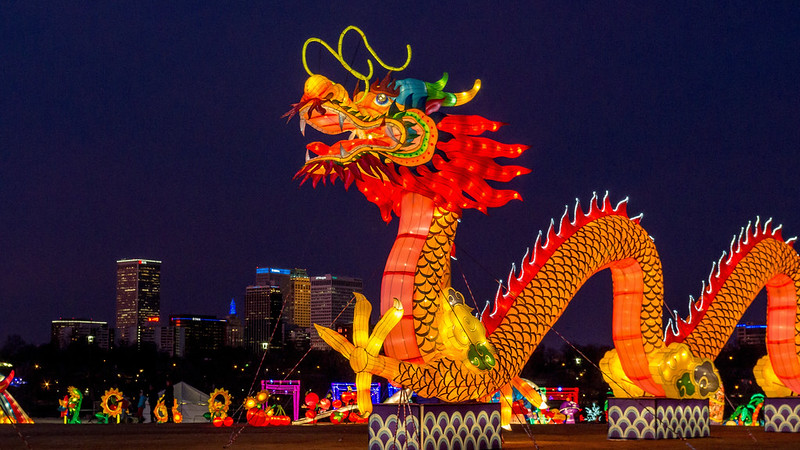The Chinese New Year is upon us, and with its arrival, the Year of the Rabbit departs and the Year of the Dragon takes over as the annual Chinese Zodiac. Although commonly misunderstood to be the encompassing Lunar New Year, the holiday is celebrated by millions of Chinese people worldwide at the beginning of the new year according to the lunisolar calendar. For East and Central Asian countries, this day is commonly celebrated on the second new moon after the winter solstice, which for the year of 2024 is the 10th of February.
For China, the Chinese New Year is celebrated as a grand festival commonly referred to as the “Spring Festival” and is considered to be one of the most significant holidays for their culture, traditionally a time to honor deities as well as ancestors. But for most Chinese-American families, this instead manifests as a celebratory occasion for them to gather together for a reunion dinner. Alongside this are the many customs associated with the Chinese New Year, the majority of which are traditions to welcome good luck, fortune and longevity for the rest of the incoming year. One such custom is the popular usage of red, which was thought to be an auspicious color due to it sounding similar to the Chinese word for “prosperous,” red is also a cultural emblem of joy and believed to have the ability to scare away maleficent spirits. Many New Year traditions followed this custom, including the wearing of new red garments, firecrackers rolled up in red paper, hanging red paper lanterns and decorating doors and windows with red paper cut-outs. However, arguably the most recognizable tradition is the passing out of red envelopes from married couples and the elderly to their children or juniors, which would contain money and symbolize good wishes and luck for the new year ahead.
“We don’t do firecrackers or burn bamboo sticks often, but we always do the red envelopes after the dinner,” mentioned Senior Nathan Zeng, “The money that me and my brother get would change a lot each year, the lowest I’ve gotten was 5 dollars and the most being 100. You can’t refuse it either, it’s considered rude to not accept it.”
Another popular tradition concerns how the reunion dinner was prepared. The dinner would normally be hosted in or near the home of the oldest family member, and prominently featured a feast of dishes, primarily of meat and fish, and a communal hotpot: used to represent the coming together of the family for the meal. Other traditional dishes include noodles, fruits and dumplings, each of which represents a different value for the new year. The specific type of noodles prepared are known as longevity noodles, thin and very long wheat noodles which symbolized the wish for a long life. The fruits of choice are oranges and tangerines were used for fruits because of their roundness and color to represent wealth and fullness, as well as their similar Chinese pronunciation to the word for success or luck. Lastly, dumplings represent wealth because of their money-pouch-like shape.
“Although we don’t celebrate the new year as seriously as other Chinese families, we always did the reunion dinner. Sometimes we would go to a Chinese restaurant to celebrate it, and other times we would prepare Chinese long noodles and dumplings for dinner with relatives,” mentioned Zeng.
The Chinese New Year has traditionally been a time for reunion and welcoming the future, but even though not every family recognizes or celebrates the holiday, it’s important to put aside time to spend with loved ones while they are still here. With all the uncertainties that the future holds, it’s important to remember to take it all in stride, count the blessings given and move forward, even if a few good luck rituals need to be done to help that.
Approach of the Dragon’s Year
About the Contributor

Aidan Ro, Staff Writer
Hey, my name is Aidan Ro, and I’m a senior taking his first year of journalism. I’m very passionate about writing, and while publishing articles is in a different direction I want to take with that passion, I’m still looking forward to the new experiences this will give me. Outside of school, I enjoy baking, practicing lacrosse, listening to music, and playing any game I can get my hands on.








